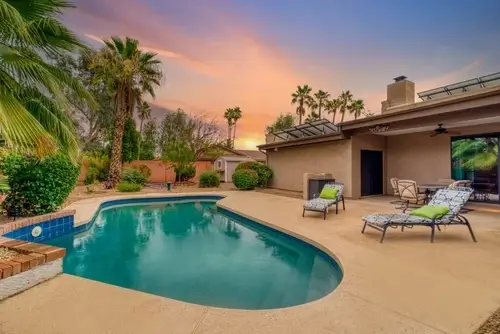
Are you tired of juggling a pile of bills, from high-interest credit card debts to personal loans and auto payments? If so, there might be a financial strategy that could simplify your life: refinancing your mortgage to consolidate all those debts. In thi
Dec 05, 2023 | Refinancing a Home

In the dynamic landscape of personal finance, job loss can send shockwaves through your financial stability, particularly when it comes to managing your mortgage. Yet, with appropriate preparation and a little knowledge you can navigate these turbulent wa
Nov 28, 2023 |

When it comes to home loans, fixed-rate mortgages are the bread-and-butter of the market and for good reason. If you're all about making savvy financial moves, you’ll want to learn these golden knowledge nuggets that will show you why fixed-rate mor
Nov 21, 2023 | Purchasing a Home

Ever stopped to ponder how age can shape your journey into the world of mortgages? Well, today, we're diving headfirst into this intriguing aspect of homeownership. Buckle up because we're about to explore how your age can sway the tides of mortgage eligi
Nov 14, 2023 | Purchasing a Home

The vacation home-buying craze spurred by the COVID-19 shutdowns has started to fizzle out, which is great news if you are still in the market for a getaway home. While vacation home sales skyrocketed 17% in 2020 and 33% in 2021, by the middle of 2023 dem
Nov 07, 2023 | Purchasing a Home

When you own a property, you can encounter a circumstance where you need to use the equity you've accumulated over time. Home equity lines of credit (HELOCs) and home equity loans are two popular ways to access this equity. Both are capable of providing d
Nov 02, 2023 |
Don’t Get a Mortgage from a Company that has “Bank” in its name
When buying or refinancing a home, most people don’t even know the first place to start the process. While some may know someone that knows someone, the majority turn to a bank that they have dealt with in the past or an advertisement they see on television for their first call. Others will turn to the internet and take a shot in the dark to see if they hit the target. Unfortunately for these people, after everything is said and “closed”, they realistically didn’t ever have a chance to really see the target. With all of the marketing gimmicks that you see (No closing costs, no money down, $5000 incentive if you pick this lender….. Blah, Blah, Blah!!!!!!), it is very difficult to understand what is the best path and the most sound financial decision when buying a home.
Before the crash in 2009, everybody played the rate game with lenders, and whoever gave the borrower the best rate won. What most people didn’t realize was that the higher the rate, the more money the bank would make. This was called a yield spread premium. The higher the rate, the higher the yield in the bank’s pocket. Well, that is not the case anymore. The best rate is not always the best decision. Since the controversial “Dodd Frank Act”, the rules have changed drastically, and what most do not realize, this is what changed the game for consumers in a very positive way. Instead of the bank getting paid more when they charge a higher rate, now the homebuyer gets the paycheck the bank used to get to put towards their own closing costs. Yield Spread premium is now called a “Lender Credit”. This means that you can now decide on the rate that best fits your financial situation. For example, at 4% interest on a 30 year conventional mortgage the lender will pay 1% of the loan amount towards your closing costs. If the rate is moved to 4.25%, then the lender will pay back 1.25% of the loan amount. At 4.5% they may credit you 1.5% and so on. Based on a $100,000 loan the credits to you would be $1000, $1250 and $1500 respectively.
How does this help you?
For someone that may have little money to put down at closing, taking a higher rate would enable them now to have the lender pay for some of the closing costs. On higher loan amounts, all of the closing costs can be paid by the lender. This enables many people that couldn’t buy a home before the crash to have many more options to be able to buy now because they do not have to bring as much money to the table.
NOW HERE IS THE KICKER!!!!!
All of the gimmicks that I mentioned above (No closing costs, no money down, $5000 incentive if you pick this lender….. Blah, Blah, Blah!!!!!!), well those are all based on the Lender Credit. As a broker, I am required by law to disclose the amount of lender credit for each rate, but the banks are not.
What does this mean?
This means that the bank can hide the money from you and put it in their pocket. This is how they advertise no closing costs or special incentives to use them. They are just raising your rate to cover everything without you having a say in what you want to do. If they are not offering incentives or showing a lender credit on your loan estimate, then, well they are just raking you over the coals. If you use a broker, that money is always yours, end of story.
The law has again allowed banks to be dishonest with your money. By using a broker, you will always know where every penny of your money is used.
Daniel Cason Lonestar Mortgage Solutions Texasmortgagedc.com